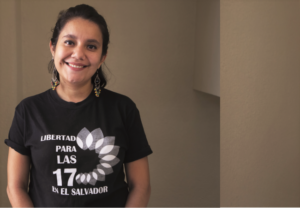Salvadoran Legislature Debates Abortion Decriminalization
 Legislators in El Salvador debated a bill that would decriminalize abortion on April 24. Activists and legislators introduced the bill in October 2016 in hopes of decriminalizing abortion in pregnancies dangerous to the mother’s life or resulting from sexual assault.
Legislators in El Salvador debated a bill that would decriminalize abortion on April 24. Activists and legislators introduced the bill in October 2016 in hopes of decriminalizing abortion in pregnancies dangerous to the mother’s life or resulting from sexual assault.
The Center for Reproductive Rights considers El Salvador’s ban on abortion to be the strictest in the world. Under the 1998 ban, the Salvadoran government has allowed numerous women to suffer permanent health complications. It has incarcerated others who suffer miscarriages or other obstetric incidences. In addition, doctors are required to report possible abortions to the police). Between 2000 and 2011, 129 Salvadoran women faced prosecution for abortion-related crimes.
“We have a lot of hope about the outcome of the commission [regarding the bill],” says Sara Garcia, advocacy coordinator at the Citizens Group for the Decriminalization of Abortion in El Salvador. Activists, health professionals, and protesters have held multiple demonstrations in the nation’s capital, San Salvador. According to Garcia, “This is a historic moment. There’s been a qualitative shift–it’s not just women’s groups speaking out. Abortion has become a priority topic for diverse groups. It smells and feels like change.”
While support for the bill is strong, it still “faces serious political opposition,” according to Sarah Taylor of Human Rights Watch. El Salvador’s conservative party, the Nationalist Republican Alliance, has also introduced a bill which would increase the penalty for abortion from 30 to 50 years, officially equating the crime to murder, corresponding to Article 1 of the Salvadoran Constitution, which already declares life as beginning at conception.
There are currently 10 Salvadoran women serving sentences of up to 40 years for abortion-related crimes including aggravated murder. The United Nations has called on the El Salvador’s government to re-think its approach to the issue. The Salvadoran minister of health has also admitted the ban’s negative health effects on women.
